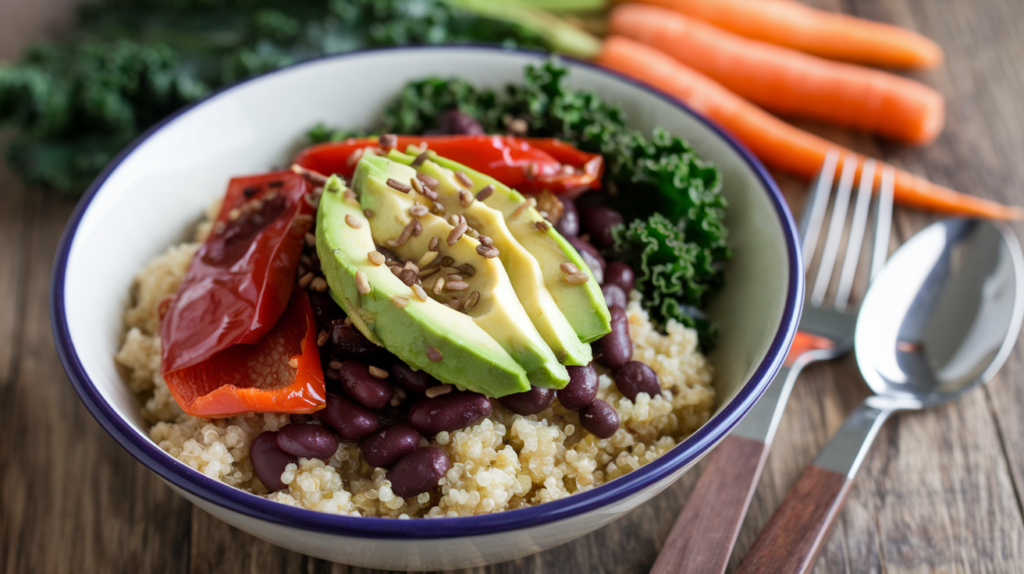Embracing a vegetarian lifestyle can lead to a nutritious and balanced diet. To achieve optimal health, focus on variety, balance, and moderation in your meals.
Understanding Vegetarianism
A vegetarian is someone who abstains from all types of meat, including beef, poultry, and fish. There are various classifications within vegetarianism:
- Lacto-ovo vegetarians avoid meat but consume eggs and most dairy products.
- Vegans, on the other hand, eliminate all animal-derived foods from their diet.
Meeting Protein Needs
One common concern among vegetarians is obtaining sufficient protein. Interestingly, many people consume more protein than necessary. For lacto-ovo vegetarians, dairy products are excellent protein sources. Vegans can fulfill their protein requirements through:
- Nuts
- Seeds
- Soy products (like tofu and tempeh)
Beans are another fantastic protein source, with a variety of options available, such as lentils, pinto beans, and kidney beans. For instance, one cup of cooked beans offers a protein equivalent to two ounces of meat.
Nutrients to Monitor
While vegans and vegetarians can maintain a healthy diet, it’s crucial to monitor specific nutrients:
- Vitamin B12: This vitamin is primarily found in animal products. Vegans should consider supplements or fortified foods like soy milk to ensure adequate intake.
- Calcium: Fortified foods, such as certain brands of orange juice and soy milk, can help vegans meet their calcium needs. Beans and leafy greens also contribute to calcium intake.
- Vitamin D: This vitamin can be challenging to obtain from a plant-based diet. Consider fortified foods or supplements, especially if you have limited sun exposure.
The Importance of Variety
Regardless of your vegetarian classification, focusing on diverse food groups is key to a healthy diet. Pay attention to your vitamin and mineral intake to maintain overall health. By being mindful of what you eat, you can enjoy a long and healthy life filled with nutritious meals.
In conclusion, a vegetarian diet can be both satisfying and healthful with the right approach. Embrace the variety of plant-based foods available and ensure you’re meeting your nutritional needs for a vibrant lifestyle.

Tips for a Healthy Vegetarian Diet
To further enhance your vegetarian eating habits, consider the following tips:
1. Plan Your Meals
Meal planning can help you ensure you’re getting a balanced intake of nutrients. Incorporate a range of fruits, vegetables, whole grains, legumes, nuts, and seeds into your weekly menu. This variety not only prevents boredom but also helps you cover all essential nutrients.
2. Explore Meat Alternatives
There are numerous meat substitutes available that can add variety to your meals. Products made from tofu, tempeh, seitan, and legumes can mimic the texture and flavor of meat, making it easier to transition traditional recipes into vegetarian versions.
3. Incorporate Whole Grains
Whole grains like quinoa, brown rice, and whole wheat pasta provide essential fiber and nutrients. They can also be excellent sources of protein when combined with legumes. Aim to include a serving of whole grains in each meal.
4. Snack Wisely
Healthy snacks can help you maintain energy levels throughout the day. Opt for nutrient-dense options like:
- Hummus with vegetable sticks
- Greek yogurt with fruit
- A handful of mixed nuts
- Whole grain toast with avocado
5. Stay Hydrated
Drinking enough water is vital for overall health. Herbal teas and infused water with fruits can add variety. Staying hydrated supports digestion and helps maintain energy levels.
6. Educate Yourself on Nutrition
Understanding nutrition can empower you to make healthier choices. Consider consulting with a registered dietitian who specializes in vegetarian diets to ensure you’re meeting your nutritional needs effectively.
7. Experiment with Cooking
Cooking at home allows you to control ingredients and experiment with flavors. Try new recipes that feature a variety of vegetables and spices to keep meals exciting.
8. Join a Community
Connecting with other vegetarians can provide support and inspiration. Look for local vegetarian groups or online communities where you can share recipes, tips, and experiences.
Conclusion
Adopting a vegetarian lifestyle offers numerous health benefits, including a reduced risk of chronic diseases, improved digestion, and a smaller environmental footprint. By focusing on a diverse and balanced diet, you can ensure you’re meeting your nutritional needs while enjoying delicious meals.
Remember, the key to healthy vegetarian eating lies in variety, balance, and mindfulness. With the right approach, you can thrive on a vegetarian diet, gaining not only health benefits but also a deeper appreciation for the wide array of plant-based foods available. Embrace the journey toward a vibrant, healthful lifestyle!
For More Articles Browse Our Blog.
